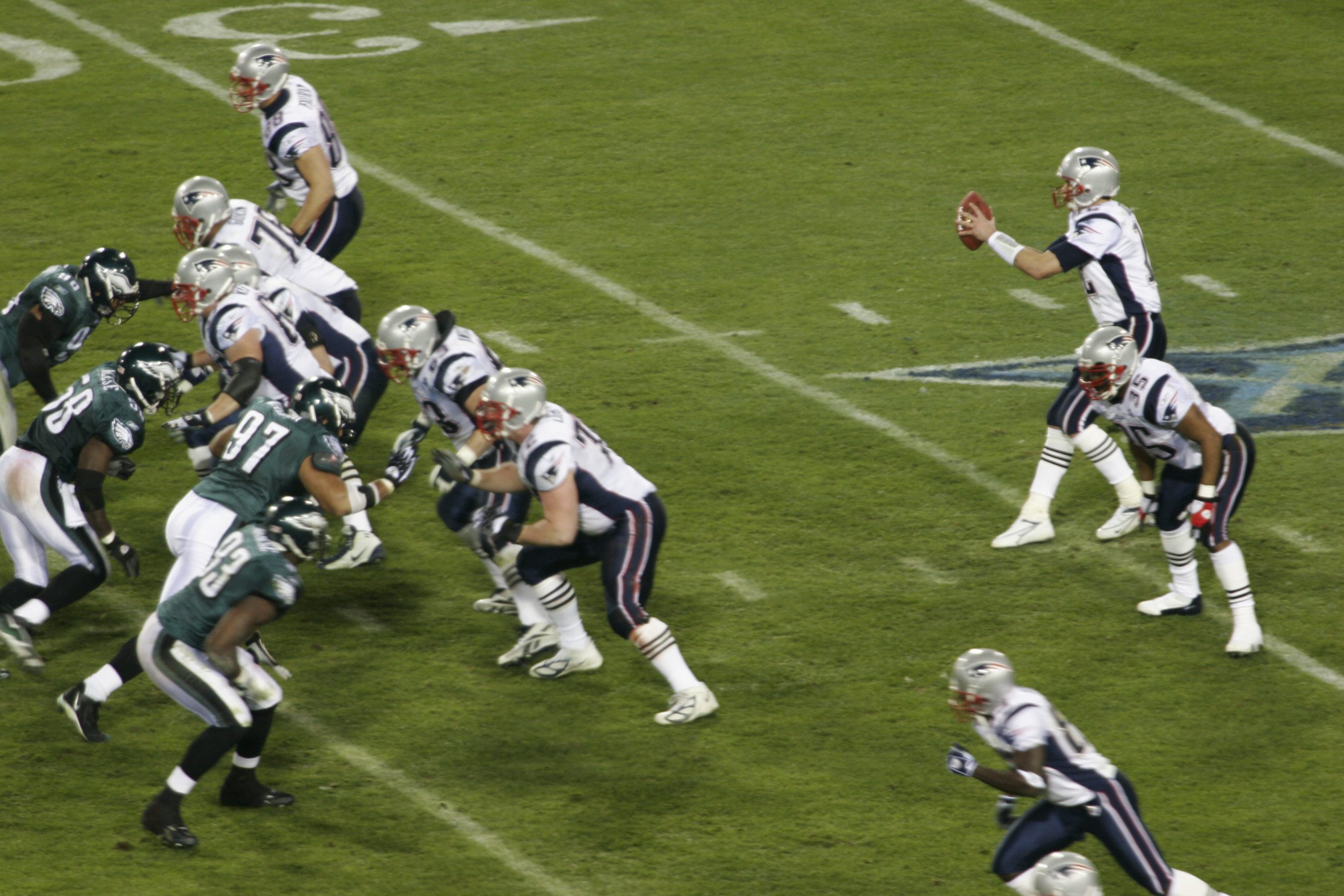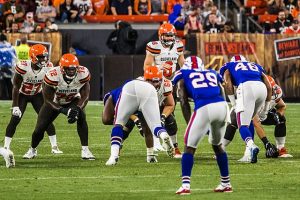Earlier this week, my colleague Graham Piro wrote a piece comparing the relative greatness of two sports franchises – the New York Yankees and New England Patriots. It falls to me, as a Massachusetts native, to correct the record.
It may seem like a strange comparison, given that one franchises’ successes belong largely to the 20th century while the other’s continue until the present, but it makes more sense in light of recent events. With the core of the Yankees’ streak of success two decades in the rearview mirror and the Patriots’ run showing little sign of stopping, Piro is obviously attempting to distract himself from what must have been a discouraging Super Bowl result. It’s understandable, if a little transparent. Still, I can’t allow a set of takes as dizzying as those he threw down to stand undisputed on a site as influential as this one.
And I know, both teams have won an absurd amount, so you don’t want to hear it. I barely want to write it. Ok, fine, I love writing it. But I have to play it coy, because you still don’t want to hear it. Just remember that he started it. Now let’s get this over with.
We’ll begin with the obvious: both teams have had incredible runs of success. The Yankees won five World Series Championships (1996, 1998, 1999, 2000, 2009) while reaching two more (2001, 2003) in the 16 years from 1996-2012, the stretch Piro has chosen to analyze. In last 16 years, the Patriots have won five Super Bowls (2002, 2004, 2005, 2015, 2017) and reached two more (2008, 2012). Championships are by far the most important measure of a franchise, but we’ll need to look past rings to find separation between these two teams. The gap between the two comes down to three things: dominance, league rules, and money.
The Yankees posted an impressive 1557-1021 regular season record in the stretch under discussion. The Patriots went 196-60 over the past 16 regular seasons. This gives the Patriots a winning percentage of .766; the Yankees .604. It’s clear that while the teams have had almost the exact same levels of post-season success, the Patriots have been more dominant on the way there.
Piro rightly notes the difficulty of comparing franchises across leagues. One of the reasons for this, he acknowledges, is that NFL teams have much more difficulty than MLB teams in maintaining dominant runs given the constraints of the NFL salary cap. When a team wins a championship, a natural cycle tends to occur. Having reached the peak of their sport, the players involved seek higher salaries. In the NFL, where franchises are limited in how many players they can pay absurdly high – instead of just ridiculously high – salaries, this leads inevitably to decline. Players leave the winning franchise to earn more elsewhere.
The same can happen in the MLB, but baseball’s lack of a hard salary cap means that teams with the financial resources to retain their players largely have the freedom to do so. Success is difficult in both the NFL and the MLB, but maintaining that success is much more challenging for football franchises, especially compared to a baseball franchise with a resource advantage relative to its league.
During their run, the Yankees have had plenty of money at their disposal. In the first decade of their run, from 1996-2006, the Yankees led the MLB in payroll spending every year except 1999, when they were second. In 2012, the final year of their run, the Yankees spent $228,987,356 on their payroll. The next highest spending team, the Philadelphia Phillies, dropped $180,041,223 on their payroll. That leaves a gap of $48,946,133 between the first and second highest spending clubs. The gap between the payrolls of the Phillies and the San Francisco Giants, seventh on the spending list that year, was only $42,518,018. Our extensive research department didn’t turn up payroll rankings for the intervening years, but we can safely assume they tell a similar story.
So they had a lot of money, you might say. They used it well, and deserve credit for that. You wouldn’t be wrong, but we’re trying to pick between two obscenely successful teams. One won in a league defined by enormous spending inequality while sitting at the top of the money list, while the other won in a league defined largely by spending parity. It seems pretty obvious to me which is more impressive. I’m not going to pretend that the Patriots struggle for funds. It just matters less, given the structure of their league.
Now to Piro’s arguments. He begins by saying that the Yankees were a complete team, while these Patriots are basically just a quarterback and a devil worshipper in a hoodie. Because of the depth of the Yankees’ roster and the beauty of their souls, their achievements are somehow more impressive. Ignoring the fact that Roger Clemens once threw a shard of baseball bat at Mike Piazza, this picture fails to capture the progression of the Patriots’ successes.
Tom Brady is now a leading contender for best quarterback of all time. In 2001, he was a game manager who kept a cool head in big moments and led a handful of crucial drives. It would be absurd to give him anywhere near sole credit for that year’s Super Bowl. Any number of members of that team’s defense, not to mention the kicker, Adam Vinatieri, deserve a similarly large share. It’s no accident that they ran out of the tunnel as a team against the Rams, instead of enjoying the then-standard individual introductions. The Yankees had a bunch of expensive stars and a consistent group of hard working fan favorites. The Patriots have a great quarterback and a rotating cast of key contributors around him. I don’t see how this makes one more impressive than the other.
Piro then says that the Yankees were basically unbeatable at their peak. He’s right, but I would point him to the Patriots’ 16-0 regular season record in 2007. And I’m aware what happened in that year’s Super Bowl. The Patriots “choked,” as he puts it. He’s not wrong. But the Yankees lost two World Series as well, and they then fell victim to what might be the greatest sports comeback of all time when they allowed the Boston Red Sox to win the 2004 ALCS after trailing 3-0 in a seven game series. They choked plenty too, so I’ll call this one a toss-up.
You probably hate the Patriots. I won’t try to change your mind. Core members of the franchise do seem to have a great relationship with our new president, after all. But you probably also once hated the Yankees, so let’s not make it a popularity contest. It comes down to this: The Yankees were dominant with an enormous financial advantage and the green light to use it. The Patriots have been slightly more dominant in a league designed to topple dynasties before they can even begin. I can’t put it any clearer than that. I’m not close to a neutral observer here, but I have to imagine that the few who didn’t douse their laptops in lighter fluid three sentences into this article will see it my way.
Photo: Wikimedia Commons






